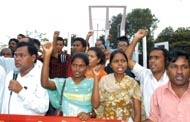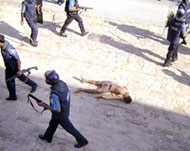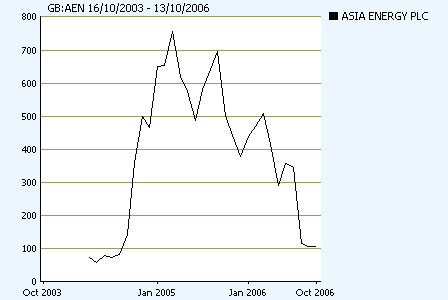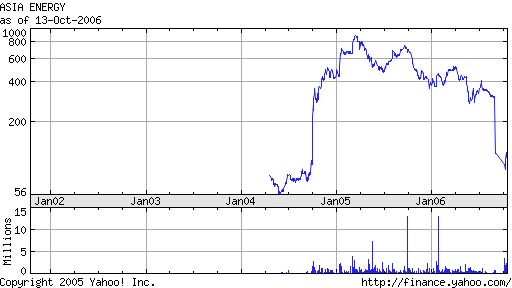Analytical Monthly Review, published in Kharagpur, West Bengal, India, is a sister edition of Monthly Review. Its October 2006 issue features the following editorial. — Ed.
The recent successful peoples struggle at Phulbari in Dinajpur district of Bangladesh against a rapacious Foreign Direct Investment (“FDI”) open-pit coal mining project is of great importance, and deserves more notice than has been given by our press.

|
At least six people were killed and about 300 injured as police and Bangladesh Rifles (BDR) opened fire on demonstrators advancing towards the office of UK-listed corporation Asia Energy PLC in Dinajpur in August 26. Eyewitnesses put the number of demonstrators as more than 30,000. Farmers and indigenous people, including women, armed with bows and arrows and sticks, joined the protest apprehending massive evictions and loss of farmland planned for the implementation of the Phulbari Coalmine Project.
Faced with the ensuing mass protests and four consecutive days of general strike against the vast open-pit coal mining project, at the end of August the Government of Bangladesh and protesters reached a “Memorandum of Understanding” ending the open-pit mining scheme. The cancellation of the project led to joyous celebrations, but given the force of imperialist globalization at work it shall require an ongoing mobilization to preserve the victory.
Coal was first discovered at Phulbari during surveying and drilling in 1994 -1997 by the Australian mining company BHP, which entered into provisional licensing and investment agreements with the Government of Bangladesh. The present energy adviser to the government of Bangladesh has said that the people who were involved in signing the agreement “should be tried.” The agreements were assigned to the newly created Asia Energy PLC in 1998. Since 1998 the price of coal has more than tripled.
Asia Energy PLC was staffed at the top with executives from Australian mining giant Rio Tinto. Barclay’s Global Mining and Metals provided the Chairman of the Board (and Barclays Capital took 2.1 million share options). Asia Energy PLC’s chief brokers are JP Morgan Cazenove, leading a pack of investors that includes Fidelity Trust, UBS AG, Cambrian Mining, RAB Capital, Goldman Sachs, and Credit Suisse.
Some 48 million shares were floated in 2004, rocketing up to a price of 900 pence a share by March 2005, for a total market capitalization of over $800 million, six months before the Department of Environment of the Government of Bangladesh granted Environmental Clearance for mining on 11 September 2005. Asia Energy envisioned a $1.1bn (£578m) investment and was negotiating for backing from the Asian Development Bank and the US Ex-Im Bank. Asia Energy estimates that Phulbari reserve has 572 million tons of high-quality coal located at varying depths between 140 meters and 300 meters. The company targets annual production of 15 million tons of coal for 30 years, 12 millions to be exported. Mining is to be by the relatively inexpensive open-pit process, ripping off the covering hundreds of meters of soil and rock and extracting the coal. Bangladesh would receive, once sales were under way, a six percent royalty.
Far from the feverish speculation in the shares of Asia Energy on the London exchange, the real costs of the proposed project began to be recognized in the Phulbari region. The company itself acknowledged that no less than 40,000 people would be involuntarily “resettled” and 10,000 hectares, primarily of fertile agricultural land, would be required for the mine and associated infrastructure. Other estimates, based on the census records of local government units, suggest over one lakh [hundred thousand] would be evicted. The issue is further complicated by the fact that many of those who will be displaced — the exact figure is disputed — are members of the Santal indigenous tribal people. Like most tribal groups in South Asia, they do not have any land deeds or other documents proving ownership of their land, but their families have lived on it for centuries. Many of the Santals fear they will miss out on being re-housed because they do not have the paperwork. In addition the area whose water table would be affected by the open-pit mining operation extends to over 600 sq km. The area is very fertile, yielding three crops a year, and intensely populated. Protests began, and no further approvals were given. Nonetheless, Asia Energy PLC awarded contracts and signaled its readiness to start full operation from 2008.
The growing resistance did not go unchallenged. Nasreen Huq was an official of the British Government-supported agency “Action Aid in Bangladesh.” As reported in The Observer of 3 September, 2006, “Huq is known to have raised concerns about Asia Energy’s plans when she met company representatives last February. According to several people close to her, the UK Department for International Development was becoming increasingly concerned by her opposition to the scheme. She talked to her sister Shireen, deputy program director at the Danish aid agency Danida, who said that Nasreen told her that David Wood, the department’s chief in Dhaka, asked her to drop her campaign against the mine.” On 24 April Nasreen was killed, rammed against a wall by her own driver. The driver has been arrested and a murder investigation formally begun.
A wave of protests at Phulbari against the Asia Energy PLC project culminated in the demonstrations of the last week of August, organized under the banner of the National Committee to Protect Oil, Gas, Natural Resources, and Ports, a platform of different rights groups and leftist parties. After the murders of August 26th, the ensuing indefinite hartal [strike] spread far beyond Phulbari itself. On August 31st the Government yielded to the general strike and promised that no open-pit mining would take place at Phulbari. As the speakers at the celebration meeting said, “the victory is the result of the united strength of the people. Thousands of people of Phulbari, including women and Adivasis, fought together to win this victory.”
Much as JP Morgan Cazenove planned to strip off the fertile soil to uncover the coal, the people of Phulbari have stripped off the cover of “FDI development” to expose the murderous reality underneath. And yet more important they have shown how, under present international conditions of growing opposition worldwide to capitalist globalization, successful mass resistance is possible. The lesson needs to be learned in the rest of Bangladesh, and beyond.
|
| Print



